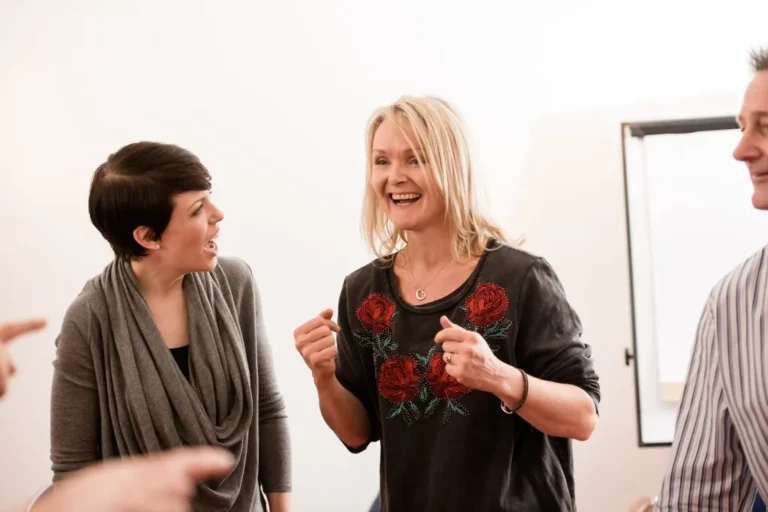
Mastering Strategic Thinking in Leadership: A Guide for Effective Decision-Making
Discover the fundamentals of strategic thinking and why it’s essential for leaders.
Strategic Thinking in Leadership
As a leader, making well-informed decisions that drive your organisation’s success is a crucial responsibility. The ability to think strategically has become an essential skill in leadership roles. Strategic thinking involves a comprehensive approach that enables you to analyse complex situations, identify patterns, and consider multiple perspectives before making decisions.
At its core, strategic thinking in leadership means anticipating future challenges and opportunities for your business. It’s about looking beyond immediate goals and considering the long-term implications of your current actions. With a strategic mindset, you can navigate ambiguity, ensure your decisions align with your organisation’s objectives, and guide your team towards sustainable growth and success.
In this guide, we’ll explore the fundamentals of strategic thinking and its significance for leaders like yourself. We’ll cover practical frameworks and strategies that empower you to cultivate a strategic mindset, make data-driven decisions, and foster a culture of strategic thinking within your organisation.
Key Takeaways:
- Strategic thinking empowers leaders to make well-informed decisions that drive organisational success.
- A strategic mindset involves anticipating future challenges, aligning decisions with long-term goals, and considering multiple perspectives.
- Leaders should cultivate strategic thinking by embracing curiosity, continuous learning, and diverse viewpoints.
- A structured decision-making framework involving data analysis and evaluating alternatives can lead to more effective strategic choices.
- Fostering a culture of strategic thinking through collaboration, knowledge-sharing, and professional development opportunities is essential for organisational success.
The Fundamentals of Strategic Thinking
Critical analysis and foresight
In your leadership role, you need to go beyond surface-level information and dig deeper to uncover underlying patterns, trends, and potential roadblocks. This involves asking probing questions, challenging assumptions, and considering different scenarios.
Foresight is about anticipating future developments and preparing your organisation accordingly. Rather than being reactive, strategic leaders take a proactive approach, constantly scanning the horizon for emerging opportunities and threats that could impact their business.
Identifying patterns and connections
Influential strategic thinkers have a knack for recognising patterns and connecting seemingly unrelated pieces of information. By identifying these patterns, you can gain valuable insights into complex problems and develop innovative solutions.
Considering multiple perspectives
Strategic decisions rarely have a single, straightforward answer. You need to consider multiple perspectives, including those of stakeholders, employees, customers, and industry experts.
Why Strategic Thinking Matters for Leaders
As a leader, you’re faced with complex challenges and ever-changing circumstances daily. This is where strategic thinking becomes invaluable. It helps you navigate the ambiguity and complexity that come with leadership roles.
Navigating complexity and ambiguity
The business world is full of uncertainties and grey areas. Strategic thinking equips you with the tools to cut through the noise and make sense of convoluted situations. You’ll be better prepared to tackle challenges head-on, without getting bogged down by ambiguity.
Anticipating challenges and opportunities
With a strategic mindset, you can anticipate potential roadblocks or opportunities before they arise. This foresight allows you to proactively develop contingency plans, mitigate risks, and capitalise on emerging opportunities, giving your organisation a competitive edge.
Aligning decisions with long-term goals
It’s easy to get caught up in the daily grind and lose sight of the bigger picture. Strategic thinking helps you stay focused on your organisation’s long-term vision and objectives. Every decision you make can be evaluated against these overarching goals, ensuring your actions consistently drive your business in the right direction.
Developing a Strategic Mindset
Cultivating a strategic mindset is an ongoing process that requires dedication and commitment from leaders. By actively fostering certain habits and perspectives, you can enhance your ability to think strategically and make more informed decisions for your organisation.
Cultivating curiosity and open-mindedness
Successful strategic thinkers are naturally inquisitive and open to new ideas. They actively seek out diverse perspectives, ask thought-provoking questions, and challenge their own assumptions. As a leader, encourage an environment where curiosity is valued, and open-mindedness is celebrated.
Embracing continuous learning
Strategic thinking demands a commitment to lifelong learning. Continuously expand your knowledge base to stay up-to-date with industry trends, emerging technologies, and best practices. Encourage your team to do the same, fostering a culture of continuous improvement.
Encouraging diverse viewpoints
No single perspective can provide a comprehensive understanding of complex issues. Actively seek out and value diverse viewpoints within your organisation. Encourage open dialogue, actively listen to different opinions, and consider alternative approaches. This diversity of thought will enrich your strategic thinking process.
Strategic Decision-Making Framework
Having a structured approach to strategic decision-making can help ensure your choices are well-informed and aligned with your organisation’s goals. Here’s a framework you can follow:
Gathering and analysing data
Effective strategic decisions are grounded in data and facts. Gather relevant information from multiple sources, both internal and external to your organisation. Analyse this data to identify trends, patterns, and insights that can inform your decision-making process.
Evaluating alternatives and trade-offs
Rarely is there a single perfect solution to a strategic challenge. As someone in a leadership position, you must evaluate the potential alternatives, weighing the pros and cons of each option. Consider the trade-offs involved and how they might impact various stakeholders and your long-term objectives.
Developing and implementing strategies
Once you’ve analysed the data and assessed the alternatives, it’s time to develop a cohesive strategy. Clearly define the goals, allocate resources, assign responsibilities, and establish timelines for implementation. Communicate the strategy effectively to your team and stakeholders, ensuring everyone is aligned and committed to its successful execution.
Fostering Strategic Thinking in Organisations
While individual leaders play a crucial role in strategic thinking, cultivating a culture that embraces this mindset throughout the organisation is equally important. Here’s how you can foster strategic thinking at an organisational level:
Creating a culture of strategic thinking
Lead by example and demonstrate the value you place on strategic thinking. Encourage open dialogue, collaboration, and knowledge-sharing across teams and departments. Celebrate successful strategic initiatives and use them as learning opportunities for the entire organisation.
Encouraging collaboration and knowledge sharing
Strategic thinking thrives in an environment of open communication and collaboration. Break down silos and foster cross-functional teamwork, enabling diverse perspectives to converge. Implement knowledge-sharing mechanisms, such as regular meetings, internal forums, or mentorship programs, to facilitate the exchange of ideas and insights.
Providing opportunities for professional development
Invest in your employees’ professional growth by offering training programs, workshops, or educational resources focused on developing strategic thinking skills. Consider bringing in external experts or partnering with educational institutions to enhance your team’s strategic capabilities.
How Impact Factory Can Help
Developing strategic thinking skills is essential for professionals aiming to become effective leaders. At Impact Factory, we provide personal development programmes designed to help you cultivate this critical mindset.
Our courses equip you with practical tools and frameworks for strategic thinking. Through interactive workshops and expert guidance, you’ll learn how to analyse complex situations objectively, identify trends, consider diverse viewpoints, and make well-informed decisions that drive your organisation forward.
Impact Factory’s programmes focus on:
- Enhancing your critical thinking and problem-solving abilities
- Developing foresight to anticipate challenges and opportunities
- Aligning your decisions with long-term organisational goals
- Building a culture of strategic thinking within your team
Don’t let ambiguity hold you back from reaching your leadership potential. Explore Impact Factory’s offerings to take the next step in becoming a strategic leader. Visit Impact Factory or contact us to learn more about our tailored programmes and how we can help you and your team master strategic thinking for sustainable success.
Further Resources
FAQs
What is strategic thinking in leadership?
Strategic thinking in leadership refers to the ability of leaders to analyse complex situations, identify patterns and connections, consider multiple perspectives, and make informed decisions that align with the long-term goals and vision of the organisation.
Why is strategic thinking important for leaders?
Strategic thinking enables leaders to navigate ambiguity and complexity, anticipate challenges and opportunities, and ensure their decisions drive sustainable growth and success for their organisation. It helps leaders stay focused on long-term objectives while adapting to changing circumstances.
How can leaders develop a strategic mindset?
Leaders can cultivate a strategic mindset by embracing curiosity, continuous learning, and diverse viewpoints. Encouraging open dialogue, collaboration, and knowledge-sharing within the organisation also fosters strategic thinking.







